
Arquivo para a ‘Uncategorized’ Categoria
Privacy is theme in CeBIT
Opening the CeBIT in Hannover, the focus of the speeches and dialogues were the privacy  and security of data, which on Big Data environments, was named datability.
and security of data, which on Big Data environments, was named datability.
Angela Merkel, who was herself the victim of espionage digital data, said the event is crucial in the “digital world a legal framework, an underlying order”, and stressed the ruling that “national laws alone will not suffice.”
Have Dieter Kempf, president of the German Association for Information Technology, Telecommunications and New Media (Bitkom), stressed the rights of citizens: “With the use of privacy, organizational measures and new technologies such as homomorphic encryption is possible to increase data protection for higher degrees. ”
The fair opens tomorrow, March 14, to the public with some new devices, but the emphasis will be on business enterprises, Business to Business, B2B.
Day of Woman: coherent writer
Doris Lessing was an extraordinary writer, having won a Nobel Prize, feminist consciousness in a very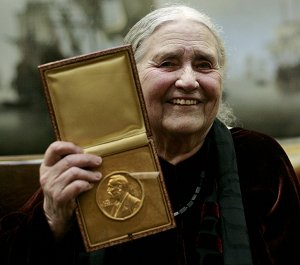 concrete type, Nobel Prize for Literature in 2007 , aged 80 years , and he died in November last year.
concrete type, Nobel Prize for Literature in 2007 , aged 80 years , and he died in November last year.
Some readings are Prisons we choose to live, which says the current state of humanity, ” this state of affairs is an unconscious reaction of reactionary forces against the forward thrust that delineate the latter centuries in humanity .”
The thesis of the book is that we have a huge amount of information that make us act in this or those ways ” but not used in the improvement of our institutions and consequently of our lives .”
A project from another book is the ” Golden Notebook Project ” a proposal for collaborative reading his book Carnet Gold, where women’s issues in this book are shared by readers , and has become the benchmark in reading collaborative network .
He wrote several books, has a website in his memory hotly fought for women’s rights, but it was never milliner, her sentence that I keep in my mind : ” I can not and will not offend my conscience just to join the fad of the day.”
Oscar was amazing, but it was warm
The surprise was the British director Steve McQueen, 44, the first black manager to win the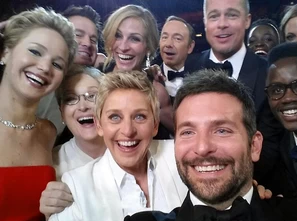 top prize at the Oscars in his speech said: ” I thank all who deserve not only survive but live. Dedicate this to all who have suffered from slavery and still suffer today. ”
top prize at the Oscars in his speech said: ” I thank all who deserve not only survive but live. Dedicate this to all who have suffered from slavery and still suffer today. ”
Have the movie “Gravity” with 7 statuettes was not new , despite the new director Alfonso Cuaron , the Mexican and the first Latin American category , the film got better photography , installation, sound editing, sound mixing , visual effects and soundtrack .
Prizes for Matthew McConaughey (Best Actor) and Jared Leto (Best Supporting Actor), that reminded Venenuela and Ukraine, as Cate Blanchett was awarded as Best Actress for ” Blue Jasmine” and Lupita Nyong’o (12 years of slavery ) , won best supporting actress.
The italian “Big Beauty” Best Foreign Film ” Frozen : A chilling adventure ” best animation and production design for “The Great Gatsby ” . See the selfie aside.
Forgetfulness of being and modernity
We have seen that Thomas Aquinas discerned, but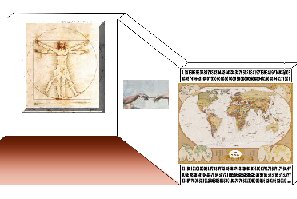 also hierarchy upon the question of being,
also hierarchy upon the question of being,
We know that every philosophy and Western life had influence of classical philosophy, and it comes from Aristotle and Plato, essentially, but a break would happen at the end of the Middle Ages, “subordinating the ‘uncommon’ knowledge that ‘subsistens ipsum’ last weekend of metaphysics, because absolutely first cause not only the order of efficiency and purpose, but also and above all in radical order of existence.” (pp. 20)
Thus, according to Plaintiff Rory F. Blanc we’re reading the Introduction to ontology, “favored the existing concrete entity as the object of metaphysics, highlighting the unique and even priority of existence as an act towards the formal plan of the essence,” while another philosopher also scholastic Duns Scotus, “preferred, such as Avicenna, the nominal meaning of being more universal than others participial, standing in the abstract metaphysics of possibility while studying the essence “(p. 20)
The author explains that this philosophy was transmitted by Francisco Suarez in his “Disputaciones Metaphysicae” 1957, which organizes the medieval scholasticism.
This is important to understand the possible logically conceived as non-contradiction, would enable the modern philosophy, especially concernada with the problem of knowledge and science, important changes in the concept of ontology, which would prepare the largely gnoseological education same, made by Kant in the eighteenth century “(pp. 21), in my view the most important statement of the author.
These changes were even terminology because “had called first philosophy or metaphysics for assignments Philosophia entis as Maignan, Ontosophia with Clauber” while Christian Wolff, disciple of Leibniz, in his study Philosofia press sive Ontology, “reflects a emergence of a new conception of first philosophy. ” (pp. 21)
Also these conceptions was present in Baumgarten and Crusius: “ara “For the first, metaphysics studies the necessary truths of reason, for the second it is … ” (pp. 21), the author opens own quotes to quote it: “scientia primorum in human principiorum cognitione “.
So “getting through Baumgarten, the Wolfian systematic, Kant, by denying the intellectual intuition, to see would be forced to remodel that deep, gnoseological accomplished the reduction of ontology before only sketched.” (pp. 22).
It was thus that Kant has to be the “in itself” (an sich) of unseen things, restricting the ontology “subjective and phenomenal scope of human knowledge” and establishing the principles of pure reason and “ended up in the anthropological context of finite meet , preventing metaphysics “(pp. 23) and preparing the field for German Idealism.
First physical library without books
A few months ago she began to operate, and was very well received by the public, but some questions must be made since the very news opinion say an Apple Store , with librarians imitating Apple’s robes “with matching shirts with hood.” Ask the Library called BiblioTech mimic the Apple Store , the news from the Associated Press says : ” The Texas saw the future of public libraries , and they look a lot like an Apple Store : rows of iMacs bright beckon . mounted on a table tangerine-colored iPads invite readers . And hundreds of other tablets are ready to be taken by anyone with a register in the library.”.
well received by the public, but some questions must be made since the very news opinion say an Apple Store , with librarians imitating Apple’s robes “with matching shirts with hood.” Ask the Library called BiblioTech mimic the Apple Store , the news from the Associated Press says : ” The Texas saw the future of public libraries , and they look a lot like an Apple Store : rows of iMacs bright beckon . mounted on a table tangerine-colored iPads invite readers . And hundreds of other tablets are ready to be taken by anyone with a register in the library.”.
Looking at the pictures of the interior BiblioTech it seems to be a common store and not a library , perhaps a laboratory information system some college but not a library , even modern libraries with cultural sights and plenty of space . The building where the BiblioTech has 45 iPads, 40 laptops and 48 desktops to be accessed by its visitors , who can browse through a catalog of 10,000 e-books .
The person who does not have a tablet or e -reader can also lend the device to read the digital version of the book at home, she can pick up one of the machines and rent it are 600 traditional e-readers and 200 other child-oriented , not necessarily Apple.
For while there is much discussion of the future of books , whether they be digital only , or if there is still space for their physical forms , to see our libraries can begin preparing for two scenarios : one in which everyone reads only versions digital works without the need to carry heavy books , and those who feel that contact with the physical book you need and not open his hand.
If the future would be cruel with physical or not , books do not yet know , but the mission of libraries is to share information and can enable , among others , the two services.
Apps provoke controversy
Officially launched in Brazil for more than two weeks, the Lula application has had over 5 million downloads, but had a great 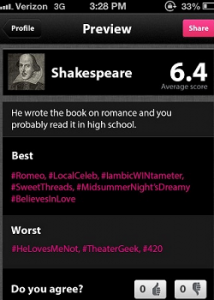 controversy, since it allows them to evaluate men in anonymity , and there are already a number of court cases .
controversy, since it allows them to evaluate men in anonymity , and there are already a number of court cases .
Last week, as if in answer to Lulu , another application was announced , now with reviews made by men, Tubby .
The questions are about Lulu humor, manners, ambition, commitment , appearance and can also point out strengths and weaknesses and in the end it gives a score for reviews.
The comments made in the common form of hashtags make references to intimate aspects of reviews and this is one of the most clearly points invasion of privacy.
There is also offensive hashtags like #moreCheaperthanbreadwithegg and other unworthy even to be mentioned, some are pre-set by the application the users can choose only what they deem most appropriate.
According to the president of the Lawyers Order of Brazil (OAB) of State of Amazonas , Alberto Simonetti, the Constitution preserves the privacy of the individual , and “that kind of anonymity makes it impossible to identify any libel or slander that may happen , it may not subsist “but the unfortunate is the application remain there.
There are already a lot of joke on the web, such as Shakespeare, as a #NerdofTheatre, which has lost many points , but the matter is serious .
More about Web 3.0
When Tim Berners – Lee , James Hendler and Ora Lassila inaugural paper published the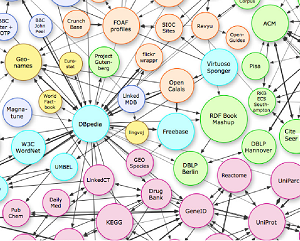 Semantic Web : new form of Web content that is meaningful to computers will unleash a revolution of new possibilities , much of the subsequent development of the Semantic Web was designed : to express meanings , knowledge representation , ontologies , intelligent agents , and finally an “evolution of knowledge.”
Semantic Web : new form of Web content that is meaningful to computers will unleash a revolution of new possibilities , much of the subsequent development of the Semantic Web was designed : to express meanings , knowledge representation , ontologies , intelligent agents , and finally an “evolution of knowledge.”
The article pointed out the path of ontologies as a way “natural ” for the development and add meaning to information in the Semantic Web , methodologies coming from Artificial Intelligence , which in the eyes of James Hendler ( Web 3.0 ) that passed through a “winter ” creative .
But three integrated tools just indicating a new path : ontologies helped build schemes simple organization of knowledge called ( SKOS – Simple Knowledge Organization of System) , a database for consultation with a language called SPARQL and what was already basic Semantic Web , which was the RDF (Resource description Framework ) in its simple descriptive language : XML.
The Web for a set of tools already developed as Web 2.0 , making the consumer also a producer of contents and ” semantic links ” , it now web in which data can be linked and regardless of the tool, one can think and there are already projects with “open linked data”, a self structuring Web.
The first major project was the DBpedia , a database proposed by the Free University of Berlin and the University of Leipzig in collaboration with the project OpenLink Software in 2007 , which was structured around the Wikipedia , using 3.4 billion to form concepts 2:46 of RDF triples ( resource , property and value) or more simply subject-predicate – object , indicating a semantic relation .
Around these data were added one large number of data including : data Average (in Blue), Geographical (in yellow), publications (in green), the government (light blue), crossing domains (dark blue) and life sciences (red) .
More future shock
We see a world that is increasingly globalized , i.e., a world that sees itself as the world knows that the problems and conflicts in countries previously remote now the corner of a ” maps” .
the problems and conflicts in countries previously remote now the corner of a ” maps” .
Written in 1970 , Toffler seemed to foresee the problems we have in our day to day at school :
” Consider, for example , the contrast between the ways that today’s schools deal of space and time. All students in almost all schools are carefully helped to locate themselves in space . Have to study geography . Maps , atlases and globes help us to be aware of their location in space . [ … ] However, when it comes to locating the child in time you preach a match cruel and harmful. Mergulhamo it as possible in the past of their country and in the world : you have to study the ancient Greece and Rome , the advent of feudalism , the French Revolution , etc. . ; [ … ] And then time stops . The school is about the changes tomorrow . [ … ] [ P . 415 ] for short time , the student’s attention is directed backwards and not forwards . The future , now banned from the classroom, is also banished from his consciousness , like a non-existent thing , as if there were no future. ” ( Toffler , 1970 , p . 414-415 ) .
Adds the difficulties of literature to prepare the student for the front, but does not ignore the critical sense , which of course , fundamental to the demands of change :
“We have a literature of the future for use in these courses , but we have about the future of literature , literature that is not only the great utopias but also in contemporary science fiction . Science fiction is taken into account low as inferior literature , and perhaps deserves this critical disdain . However , if we consider it as a kind of sociology of the future , rather than as literature , science fiction is of very great value , as it is a force that instills in the brain the habit of anticipation ” ( Toffler , 1970 , p . 417) .
It is not only technological problems , a culture for this ” world company ” , the political, ethical and religious , the culture of collaboration and peace ( have a culture increasingly belligerent ) and especially the idea that we can see tolerance , respect for differences and commons: oceans, air ,nature and the house itself is all that the planet .
What was the future in 1970 is now present, is that education is within the reach of this ?
EDX platform becomes EAD global
Founded in 2012 by Harvard and Massachusetts Institute of Technology (MIT), the distance learning platform EDX, announced last Tuesday (10/09) a partnership with the search giant Google.
The Moorc.org, provide a tool for universities, teachers, governments as well as corporate environments to host his own courses and offers them to the general public.
The site should be launched in the first half of 2014 and will be operated by EDX Open, being made open source by Google and will be worked EDX, Harvard and MIT.
The platform will compete with the more educational environment that is currently used MOODLE (Modular Object-Oriented Dynamic Learning Environment), created in 2001 by educator and computer scientist Martin Dougiamas.
MOODLE uses a Web server with PHP support (can be Apache or IIS).
The EDX uses the concept of MOOC (Massive Open Online Course) which is a more current development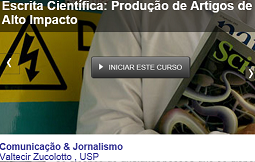 in the area of distance education because it embodies the ideals of open education suggested by OER (Open Educational recourses) which is incorporated concepts of open dissemination of educational resources .
in the area of distance education because it embodies the ideals of open education suggested by OER (Open Educational recourses) which is incorporated concepts of open dissemination of educational resources .
Not to be confused with the MOOC DE is an experience-oriented and collaborative knowledge building, done in Portuguese.
The University of São Paulo and the portal Veduca launch this week, the first Mooc (virtual courses, free and top level) of Latin America.

